-
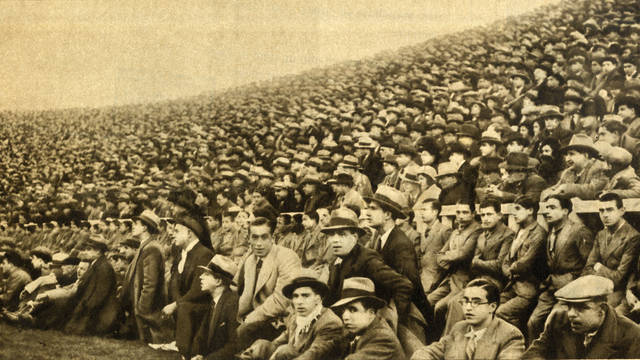 Commitment to Justice and Democracy
Commitment to Justice and Democracy
FC Barcelona was committed to social, political and cultural reform, initiated by the Republican Catalan government. The official Club newsletter in October 1932 made the Club’s position clear: “Our club’s popularity undeniably includes elements that are not related to sport.” Participation in political and cultural acts formed part of this commitment.
At the beginning of the Civil War, the Club’s employees were faced with the threat of having FC Barcelona taken from them, prompting them to make an important committee decision that ultimately saved the organisation. The committee demonstrated its firm resolve not to break away from its pre-war leadership.
The 1930s were marked by political instability and general crisis, which inevitably took its toll on FC Barcelona. During this decade, the Club endured many cataclysmic events, which included its founder’s death, the Second Spanish Republic, the Spanish Civil War and the assassination of its president, Josep Suñol. In summary, it was a period characterised by uncertainty, which saw a reduction in membership and the cancellation of some players’ contracts.
-
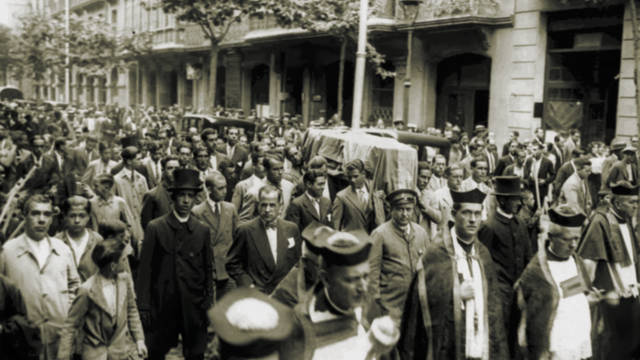 On 30 July 1930, Barça received the worst news it had ever had: Joan Gamper had committed suicide due to personal problems
On 30 July 1930, Barça received the worst news it had ever had: Joan Gamper had committed suicide due to personal problems
The Club’s founder — a dynamic businessman and sportsman, responsible for the creation and development of a unique football club — had died, aged only 52.
The demise of FC Barcelona’s founder was a bad omen for the years to follow.
-
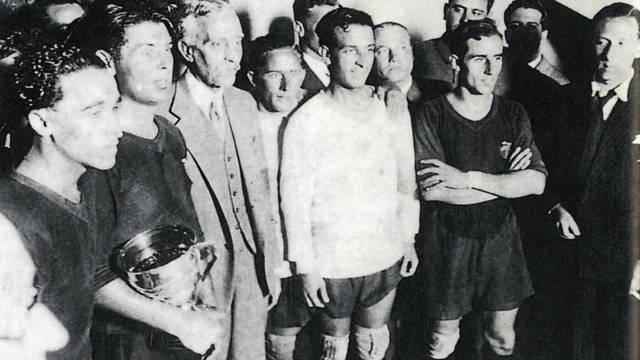 Without Gamper, the Club embarked upon a period that saw public life become increasingly politicised
Without Gamper, the Club embarked upon a period that saw public life become increasingly politicised
During the 1930s, society showed more interest in the political meetings than it did in football matches.
Barça entered a period of history characterised by its commitment to social, political and cultural reform. The new Club statutes, approved in May 1932, redefined the organisation. According to its first article, FC Barcelona was “a cultural and sporting association”. October saw the creation of the Cultural Committee, which promoted activities for members.
In July 1935, the new president Josep Sunyol i Garriga made it clear that he believed in political ideals based on Catalan nationalism. Using the motto “Sport and Citizenship”, he emphasised the link between society and sport.
-
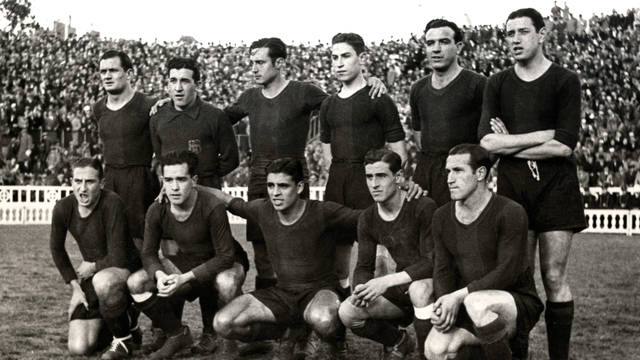 Football took a backseat to the political and social events of the time and there was no large-scale public following of matches at Les Corts
Football took a backseat to the political and social events of the time and there was no large-scale public following of matches at Les Corts
FC Barcelona entered a period of decline and the team that had been so promising only a few years previously did not win any League or Spanish Cup championships; its success was limited to the Catalan League Championship.
With Sunyol as president, the Club's economy underwent a slight improvement and Barça embarked upon a new sporting policy with the purchase of promising players. The war, however, was a massive setback to the team's seemingly brighter future.
-
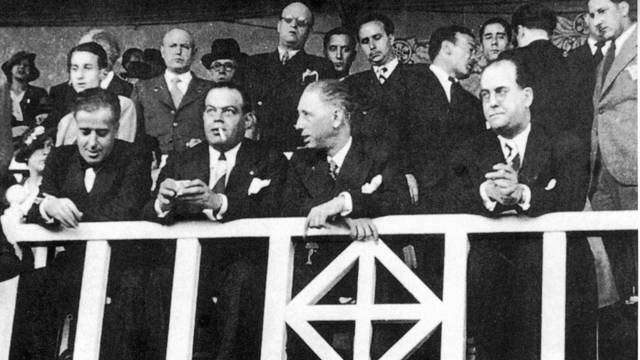 Suñol was a member of parliament for the ERC (left wing party in favour of Catalan independence) in Madrid
Suñol was a member of parliament for the ERC (left wing party in favour of Catalan independence) in Madrid
Suñol travelled to parliament from Valencia where he had gone on behalf of Joan Casanovas, the president of the Parliament of Catalonia. The visit was carried out in a political capacity and was not related to signing football players.
On 6 August 1936, Josep Suñol was shot dead by Francoist forces.
At one of the most difficult times ever experienced by Catalonia and Spain, the Club was without a president and in the midst of a revolution.
-
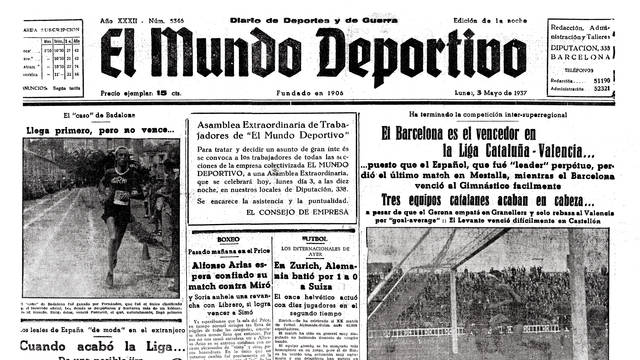 During the 1936-37 season, the Catalan Football Federation hosted a tournament in which six Catalan and four Valencian teams played
During the 1936-37 season, the Catalan Football Federation hosted a tournament in which six Catalan and four Valencian teams played
The competition was held instead of the League tournament, which had been cancelled because of the war.
FC Barcelona became the Mediterranean League champion. Since 1939, no team has ever won this title again, as it was abolished by a decree following Franco’s victory.
-
 The Civil War (1936-39) shook Spain to its very core and football was amongst the casualties
The Civil War (1936-39) shook Spain to its very core and football was amongst the casualties
A workers’ committee took control and prevented the Club being collectivised by the CNT-FAI anarchist groups.
To escape the war and, at the same time, obtain funds for the organisation’s lamentable finances, Barça set out on a tour of Mexico and the United States. Some of the team’s players never returned to Barcelona.
The team was received in Mexico in the summer of 1937 as an ambassador of democracy and liberty.
FCB
Search results
1930-1939 Struggling against History
Subscribe to:
Comments (Atom)
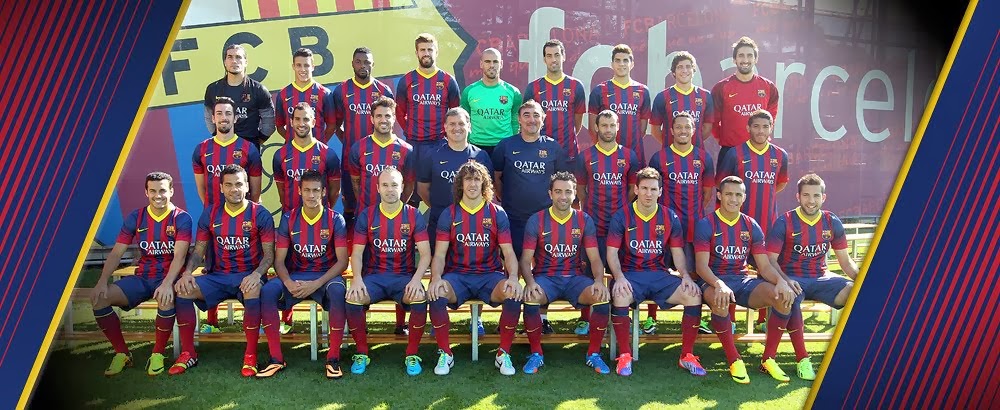
No comments:
Post a Comment